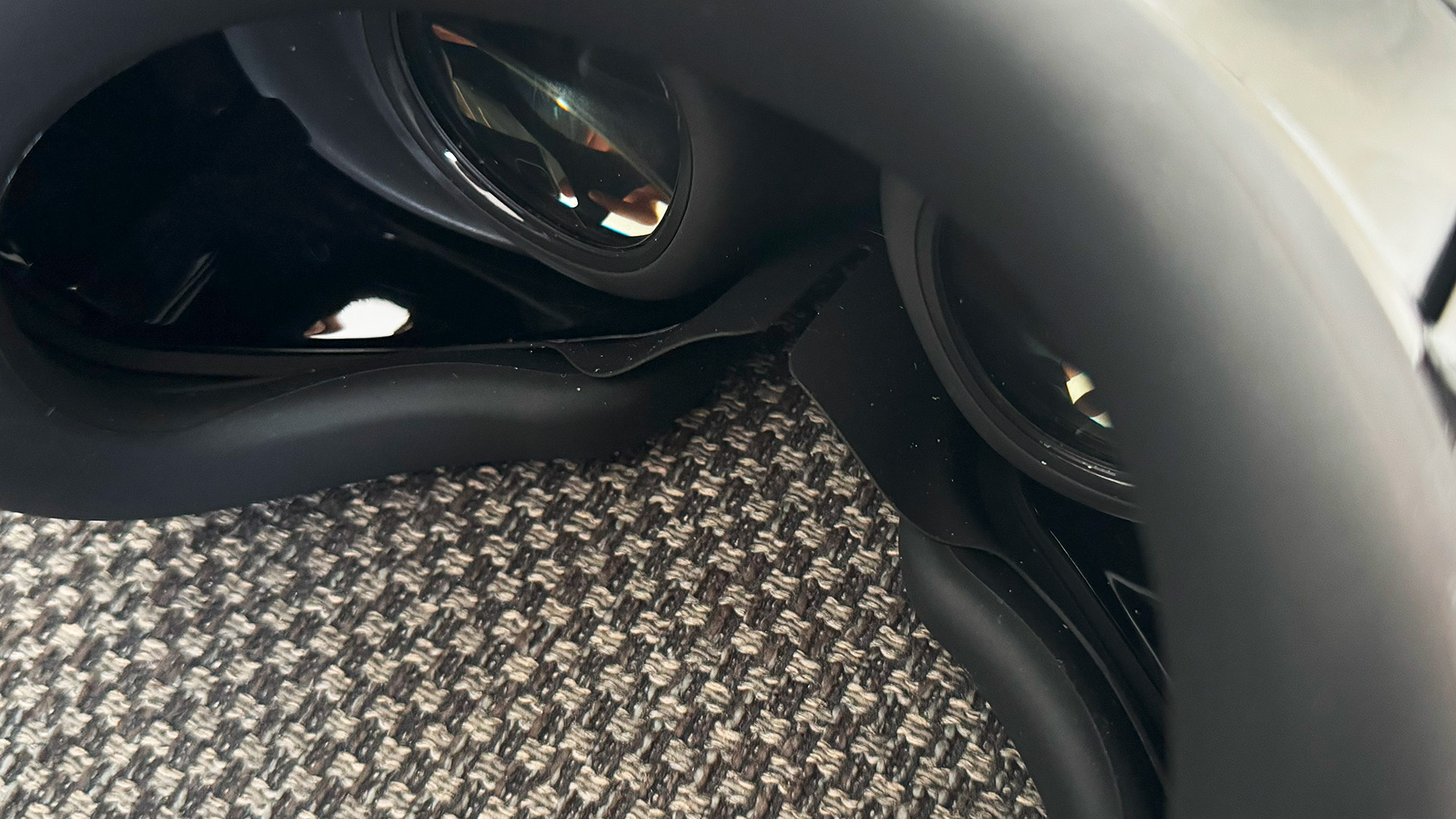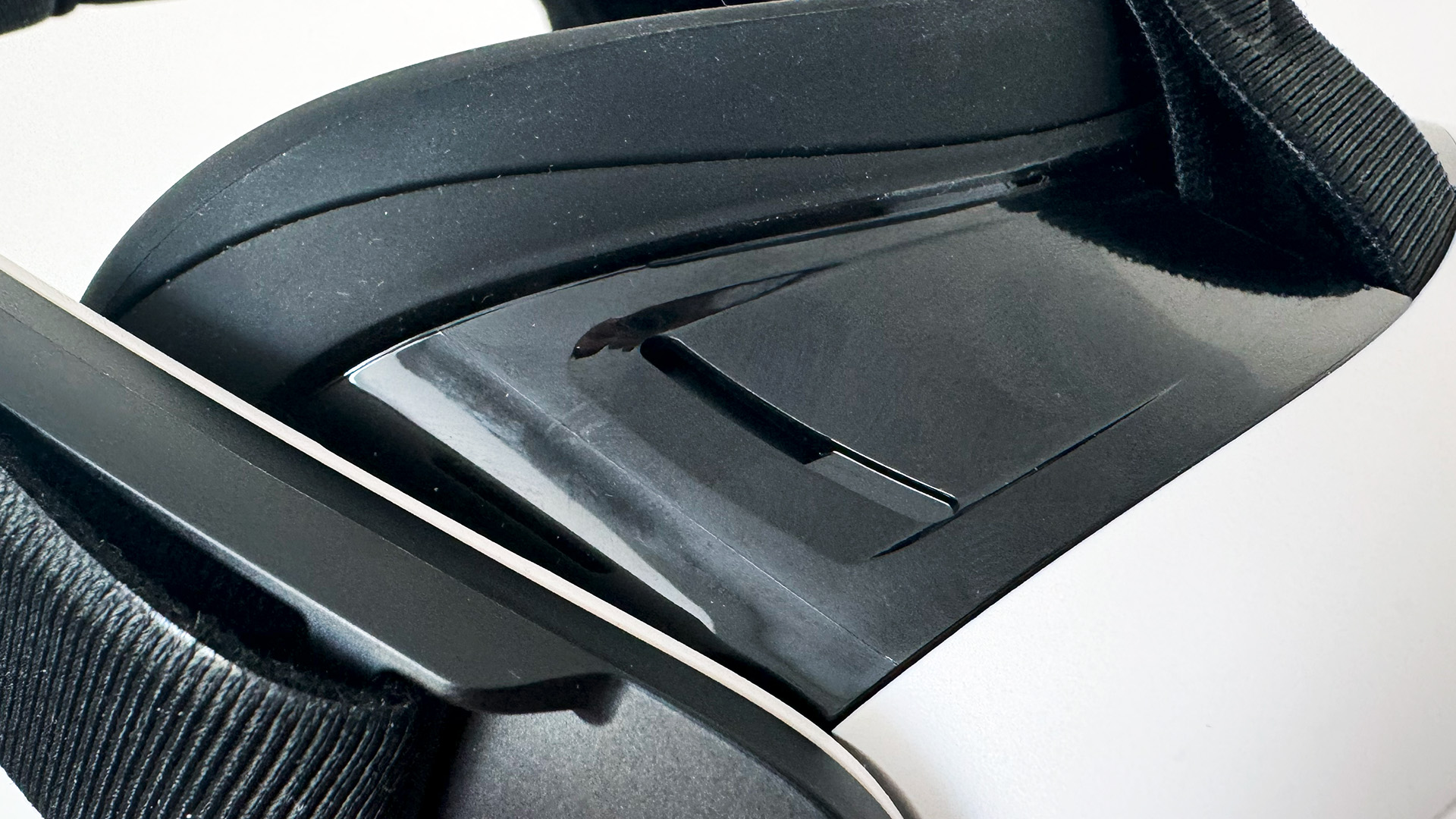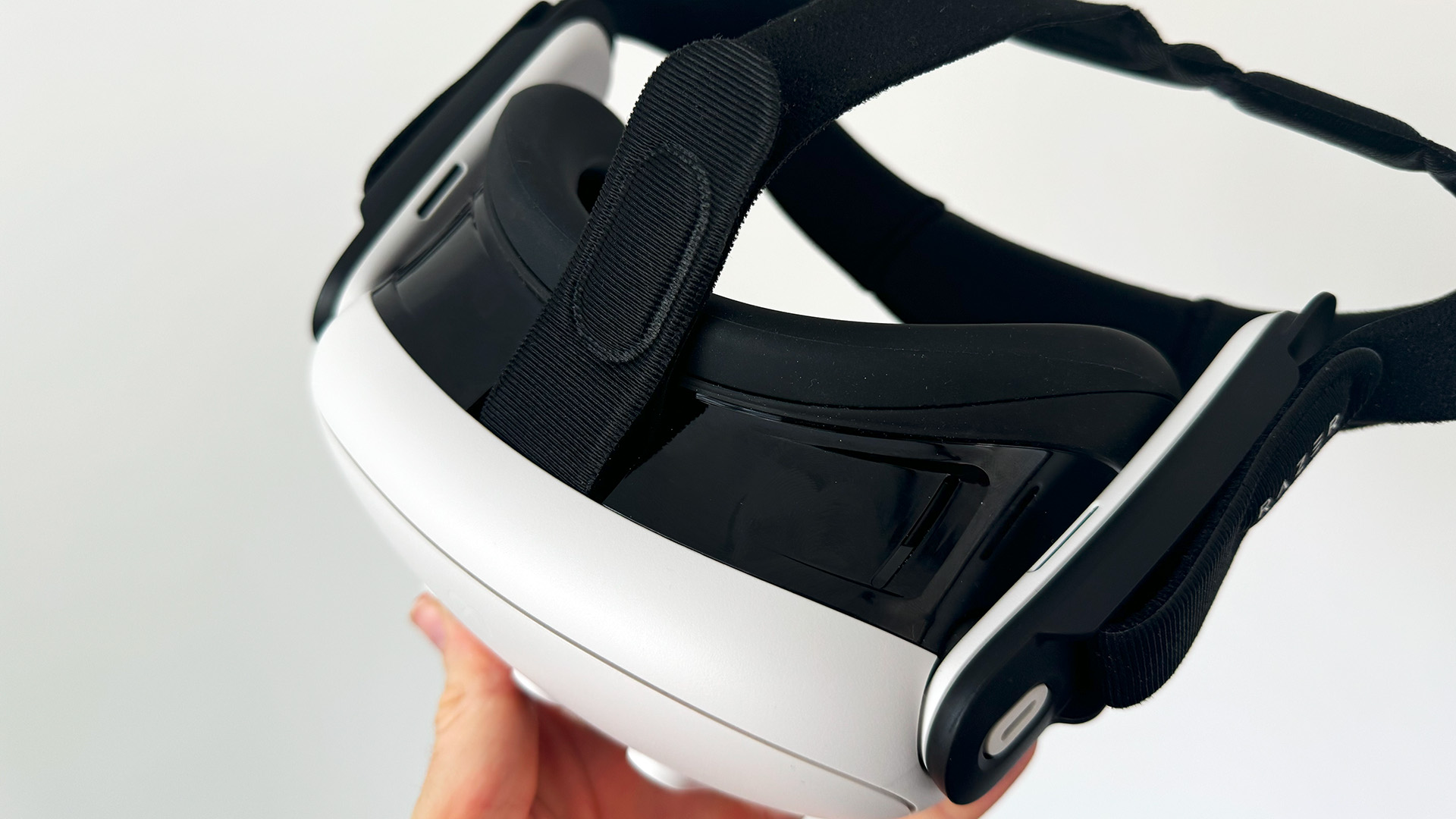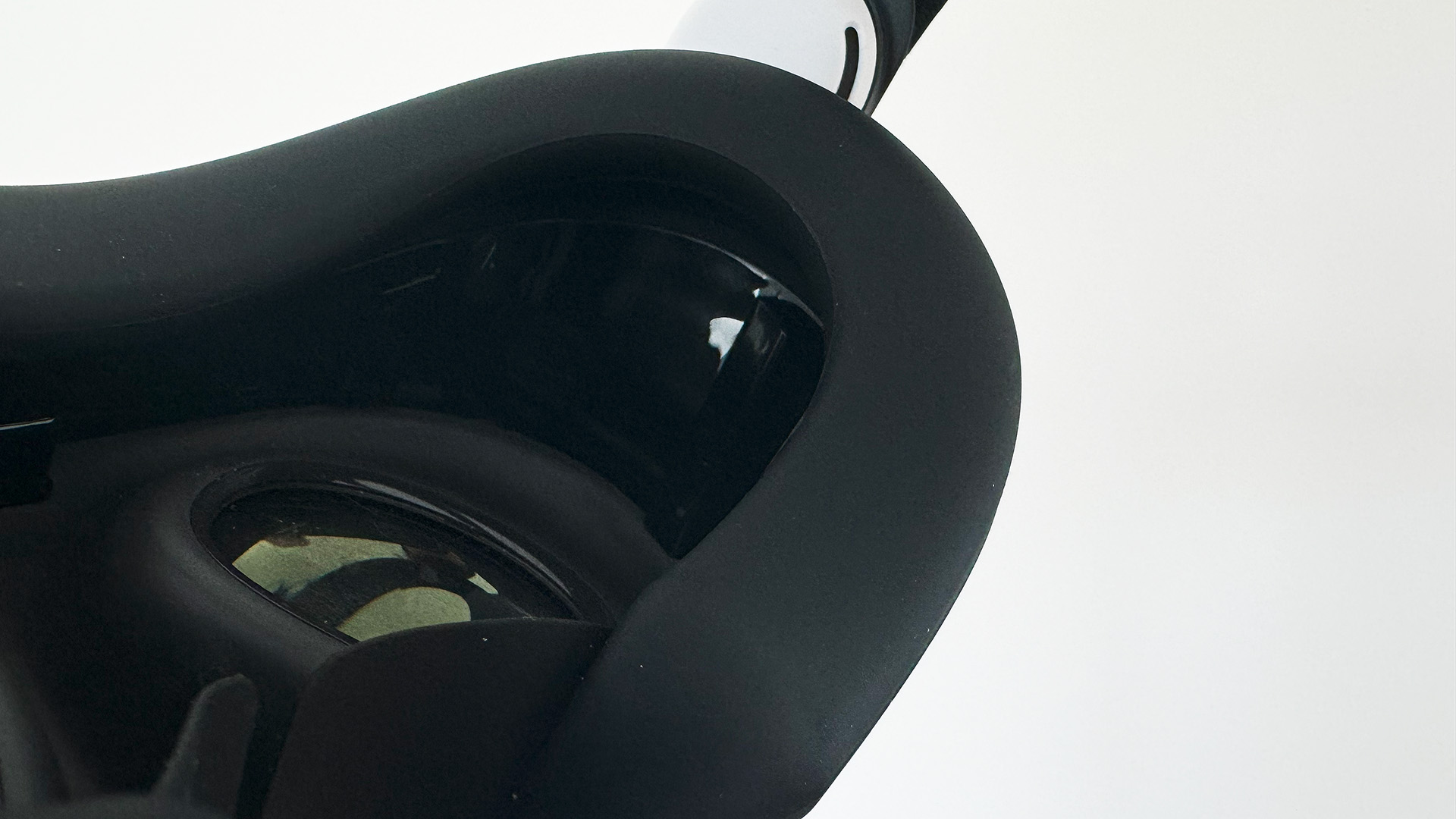GamesRadar+ Verdict
Razer's facial interface for Meta Quest 3 has lovely, soft cushioning that cools your face as you're playing. It's also more hygienic than the stock option. Unfortunately, its price makes it difficult to recommend, just like its adjustable head strap counterpart.
Pros
- +
Soft, comfortable fit
- +
Hygienic silicone covering
- +
Great light blocking
- +
Discreet added ventilation
Cons
- -
Extremely expensive compared to others
- -
No adjustability
- -
Nose flaps are fixed in place
Why you can trust GamesRadar+
One of the most popular VR headsets around, the Meta Quest 3 made a surprising change to its facial interface for the latest iteration. The switch to a fabric option won’t be everyone’s cup of tea, particularly in shared situations, so many gamers will likely turn to third-party alternatives to improve things.
If you’re looking for a return to a silicone face cushion, or simply to improve the experience all-round, then the rather bizarrely named Razer Facial Interface Authorized for Meta Quest 3 could be a good choice. This premium option is a pricey one - more expensive than some of the other best Meta Quest accessories - and will set you back a whopping $69.99/£69.99, almost double the cost of the official Meta Quest 3 silicone facial interface. It begs the question, does double the cost bring double the value, or has Razer cut off its nose to spite its facial interface?
Design & Features

Razer hasn’t exactly changed the game when it comes to the design of its own Facial Interface, at a quick glance it looks nearly identical to Meta’s official offering. This is to be expected, of course, there’s only so much you can do to mix things up with an accessory like this but there are a couple of key differences to the stock option.
The most obvious difference between the Razer Facial Interface and what’s included in the box with the Meta Quest 3 is what it’s covered in. While the standard option made the switch to a fabric-covered interface, Razer uses a hypoallergenic silicone created in collaboration with medical equipment company ResMed. Razer says the interface includes special membranes that “float on the surface of your face on a microscopic level”, without a microscope to hand I can’t verify that but whatever’s going on that close-up is working because it’s supremely soft and comfortable. It almost feels gently inflated, molding to your face like a balloon and providing an excellent fit in the process. I also appreciated the fact there are no folds, creases, or seams across the entire unit, it’s one seamless surface that means no irritation or sweat traps.
While the shape of the Razer Facial Interface largely mirrors the original, it also includes an additional nose flap for blocking out light. This concept is quite common on third-party facial interfaces (and notably absent on any Meta option) and Razer’s implementation is the best I’ve tested. I usually find these flaps irritating on the best VR headsets and distracting as they tickle your nose, but on the Razer Facial Interface for Quest 3, it's positioned in such a way that I quickly forgot it was there. That’s a good thing too because unlike others, it’s a fixed part of the interface with no option to remove it.
Performance

There’s no denying the Razer Facial Interface Authorized for Meta Quest 3 is more comfortable than the stock option, it ticks that box handsomely. It also scores points for the increased hygiene of its easily wipeable, sweat-proof silicone covering. On more than one occasion with the standard facial interface, both me and my friends have become self-conscious in a pass-the-headset situation wondering just how moist that mask is going to be by the time the next person puts it on.
When it comes to sweaty faces, not only has Razer offered a treatment for the symptoms but an attempt to ease the cause too. Subtly built into the top and bottom of the facial interface is a series of vents to offer some level of airflow. I didn’t find these to be an absolute game-changer, you’ll still walk away from an intense session with the telltale red ring around your eyes, but they certainly didn’t make matters worse. Best of all, they’re designed in such a way that they let no light bleed into the headset.
There is an accessibility drawback to the Razer Facial Interface however which may cause problems for glasses wearers. While the Meta Quest 3’s stock facial interface is adjustable to move the pancake lenses nearer or further from your face, the Razer interface is fixed in one position. It does appear to offer quite a bit of depth so may still be able to accommodate a pair of glasses but it's a shame to see this functionality removed.
Should you buy the Razer Facial Interface for Meta Quest 3?

The Razer Facial Interface for Meta Quest 3 certainly has its advantages over the standard option. It’s softer and more comfortable to wear than the stock interface and the switch back to a hypoallergenic silicone covering has its perks too. Combined with a more immersive, light-blocking fit and bonus ventilation it seems to tick all the boxes.
Apart from the lack of adjustability in lens distance and the fixed nose flaps, there’s little to complain about here. That is, apart from the price which is an unfortunate dealbreaker. $69.99/£69.99 is just too much for a facial interface on its own and it’s impossible to recommend Razer’s option while it’s at that level. As good as it may be, it’s not twice as good as other first or third-party options and unless the price comes down you’re better off investing elsewhere.
Happy to stick with console gaming for now? Check out the best PS5 accessories, the best Xbox Series X accessories, or the best Nintendo Switch accessories.
Alex is a streamer who has been creating gaming content for over a decade, streaming on Twitch regularly across the last five years. With a degree in film and a background in sports media, you'll find him jumping between 60,000 seat stadiums and his Animal Crossing island (where he's growing pears, in case you were wondering).




